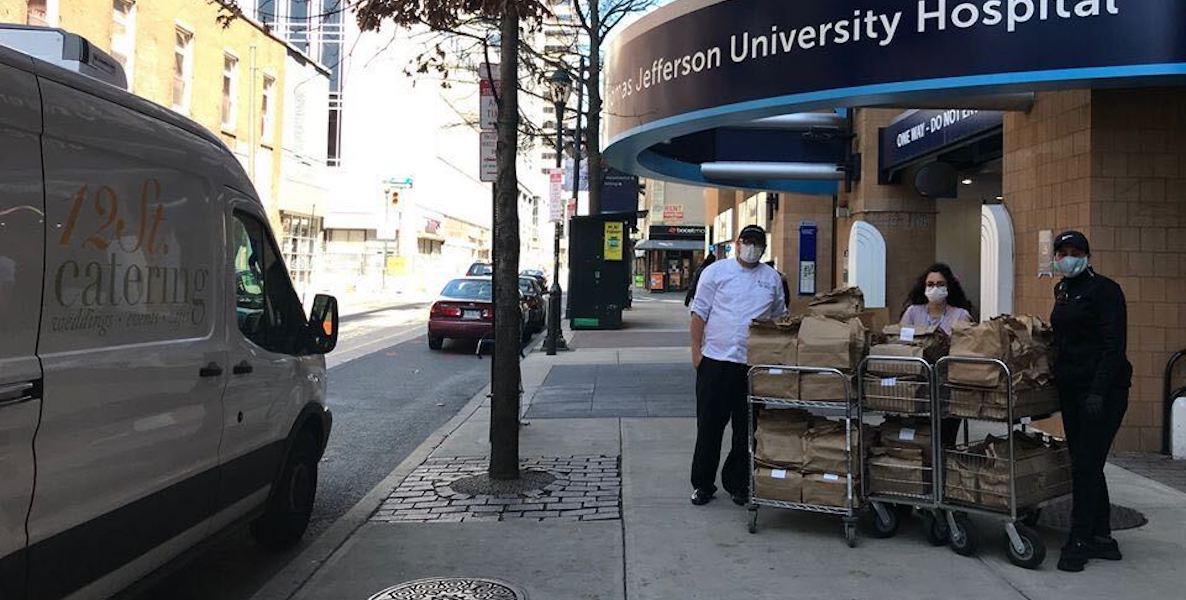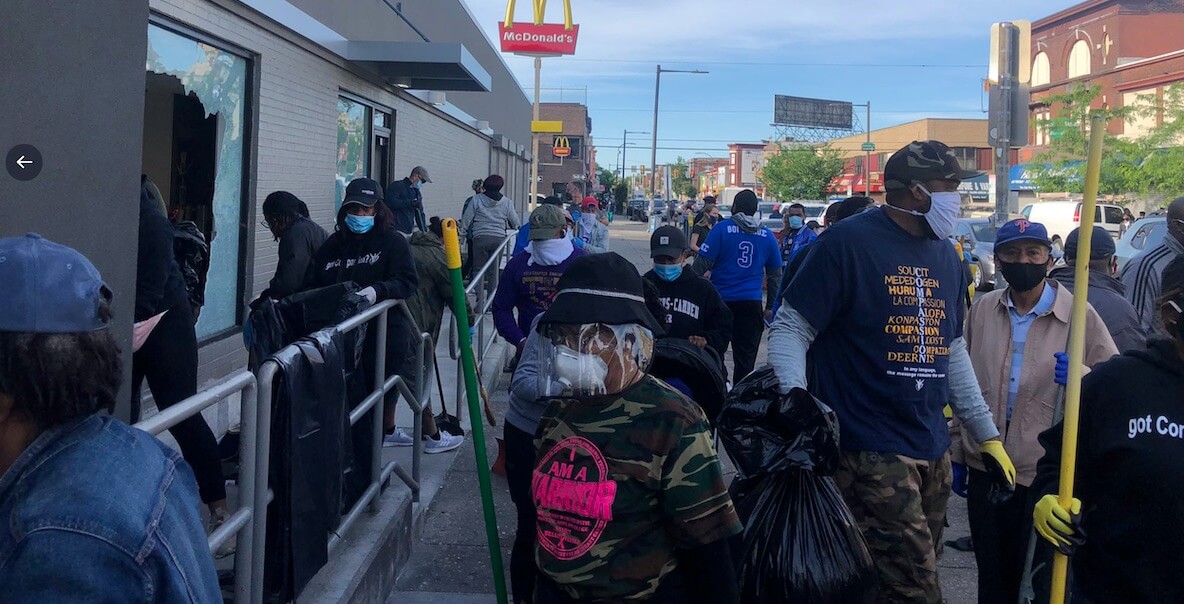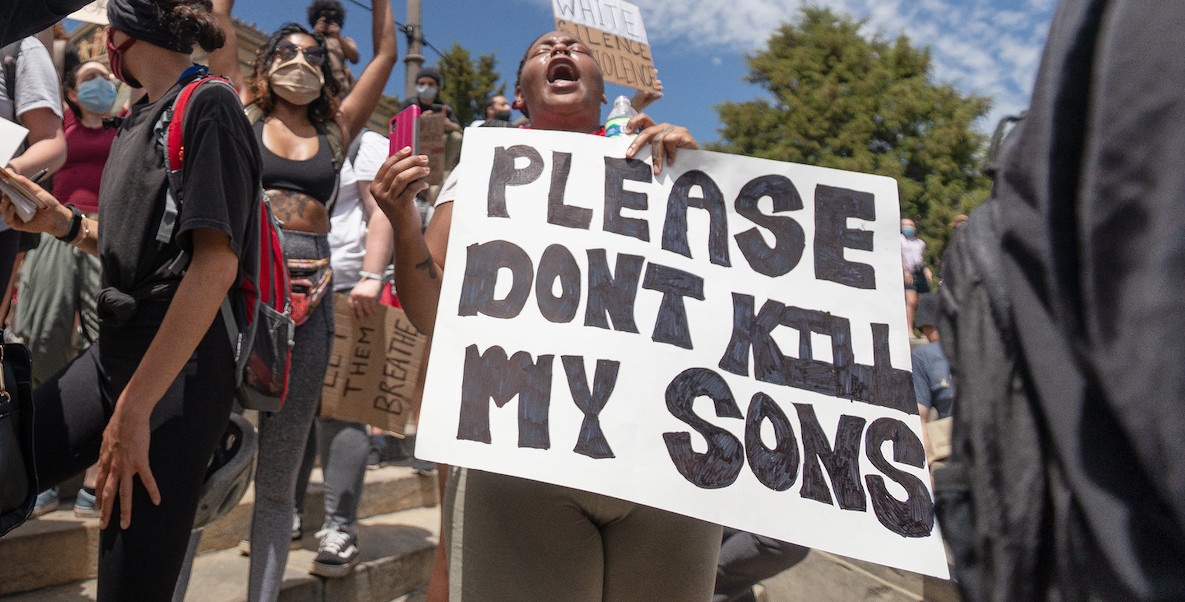Devastated.
That is the only thought I could have as I looked at the horrific damage done last Voice your supportDo Something
I understand the anger that the community has towards the deaths of George Floyd and the countless unaddressed and unnamed incidents of police brutality that take place across the nation. I’m angry; I’m upset that leaders at all levels of government have failed to address the problems the black community has been screaming about for generations.
This is a complex issue and a local issue, one not as far off as Minneapolis. It happens here in Philly all the time; people are tired of being antagonized by police and feeling their complaints have gone unanswered. They’ve tried everything from testifying at government hearings, kneeling in solidarity at sporting events, rallies and non-violent protests. But nothing has worked, and here we are again.
From that pent-up rage has come peaceful protests, silence from those that don’t know what to do—and in some cases violent looting.
It had a desired effect.
The world is watching. It seems the movement is growing with people of all races, backgrounds and nationalities that are starting to come together and say enough is enough.
The controversial Rizzo statue has been moved, new police policies seem on the way, and charges are pending in the murder of George Floyd. But still, is this enough? Will change come? The result of decades of institutional racism and police brutality has caused doubts. People need closure, they need to feel that their government is listening and that this time, there will be justice. And maybe, in some ways, the actions of the past week may get them there.
But this article is not about casting blame or justifying actions. It’s about one thing that I have realized in my position: Looting and destroying our neighborhood businesses is hurting our community.
There’s no neighborhood grocery store to buy groceries. The pharmacies are shut down and seniors are scrambling to transfer vital prescriptions. There isn’t a working ATM in sight, and badly damaged banks make it hard to withdraw cash anywhere. And hundreds of essential employees who had jobs last week didn’t show up for work or get a paycheck.
These businesses are owned by our neighbors. They are owned by people who donate to youth basketball leagues and church mission programs. They’re owned by people who give teens jobs in the summer and hire returning citizens. People that wake up every morning at 7am to sweep the block.
These are the conveniently local places where auntie can get a prescription filled without having to take the El downtown or find a family member to drive her somewhere. Where you can find a grocery store within 10 minutes from your house to buy food.
The aftermath of the looting has been prevalent across West Philly.
It was a painful sting reminding people of the importance of the businesses in this community, something that some may have taken for granted.
Last week, there were no neighborhood grocery store to buy groceries.
West Philadelphia’s gas stations were closed, and residents had to leave the community to gas up their cars.
The pharmacies are shut down and seniors are scrambling to transfer vital prescriptions.
Small businesses recoverMORE WAYS TO HELP
There isn’t a working ATM in sight, and badly damaged banks make it hard to withdraw cash anywhere.
And, worst of all, hundreds of essential employees who had jobs last week didn’t show up for work or get a paycheck. Some of them don’t know if they’ll ever be called back.
But it isn’t all bad. I saw so many neighbors and even former residents come out on Monday to help volunteer, moving trash, cleaning burned buildings and securing storefronts. I saw the resilience of a strong West Philadelphia that would not be deterred. And I feel strongly that we all have to do our part.
Now it’s time to rebuild.
Last Monday, I sent a memorandum to all the members of Philadelphia’s City Council and to Mayor Jim Kenney with a proposal for recovery. I emphasized that we need immediate police protection for vulnerable essential businesses like pharmacies, grocery stores and medical offices (hat-tip to Mayor Kenney for selectively implementing this one).
We’ve also proposed the creation of an Emergency Storefront Improvement Program to grant businesses funding that have had storefronts destroyed afford to repair and secure their facades. I also have a vision of partnering with arts organizations and artists to help redesign storefronts that liven up the corridors better than ever. More on WPCC's planVideo
Our plan includes restoring funding to the Commerce Department which provides neighborhood business services and for the City to guarantee funding for a Neighborhood Recovery Plan shaped by residents and businesses to chart out what their recovery will look like from these last few days and Covid-19.
Our voice is only as strong as those who join with us. So, no matter which part of the city you are in, whether protestor or police officer, please add your voice. Reach out to your city representatives and the mayor and tell them that you support this plan to rebuild. I know that we can do this together.
Jabari K. Jones is president of the West Philadelphia Corridor Collaborative, the largest coalition of small business associations, with over 3,000 companies represented.
Photo courtesy Councilwoman Jamie Gauthier






